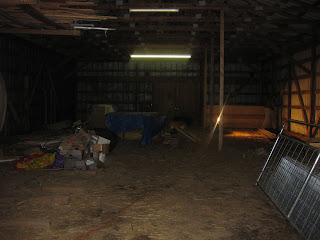Bill and I were just talking about a potential 10 year plan to becoming sheep farmers. I like that sheep seem to be profitable on a small scale. They seem to be a great option for local, sustainable farming.
This report (though it's 3 years old) just popped up on the Purdue Cooperative Extension
Sheep and Goats blog.
During the past 60 years, the number of sheep and lamb in the United States have  been declining, a fact that has been attributed to a confluence of forces. Despite the downward trend, the domestic sheep industry has taken steps toward transforming itself into a more efficient and competitive industry. This report examines the current and future challenges and opportunities that the sheep industry faces and concludes that, with a concerted industry effort and focus on new technologies, products, and markets, the downward trend can be stopped and possibly reversed.
been declining, a fact that has been attributed to a confluence of forces. Despite the downward trend, the domestic sheep industry has taken steps toward transforming itself into a more efficient and competitive industry. This report examines the current and future challenges and opportunities that the sheep industry faces and concludes that, with a concerted industry effort and focus on new technologies, products, and markets, the downward trend can be stopped and possibly reversed.
Also popping up in my Reader this morning...the newest collection of yummy, yummy patterns from
Brooklyn Tweed. Brooklyn Tweed also has yarn lines that are US grown wool spun in a US factory - and his yummy, yummy patterns all use that wool. I'm not sure how rare the US grown and spun wool is, but the sheep report says "from 1995 to 2005, wool accounted for only about 0.6 percent of all fiber use in the U.S. mills," and that doesn't sound like much. I haven't tried his yarn yet (pricey, very pricey), but it's on my list. It is spun woolen, so it's fluffier, warmer, and a bit more prickly than most yarn I typically use or spin.
Go sheep!





